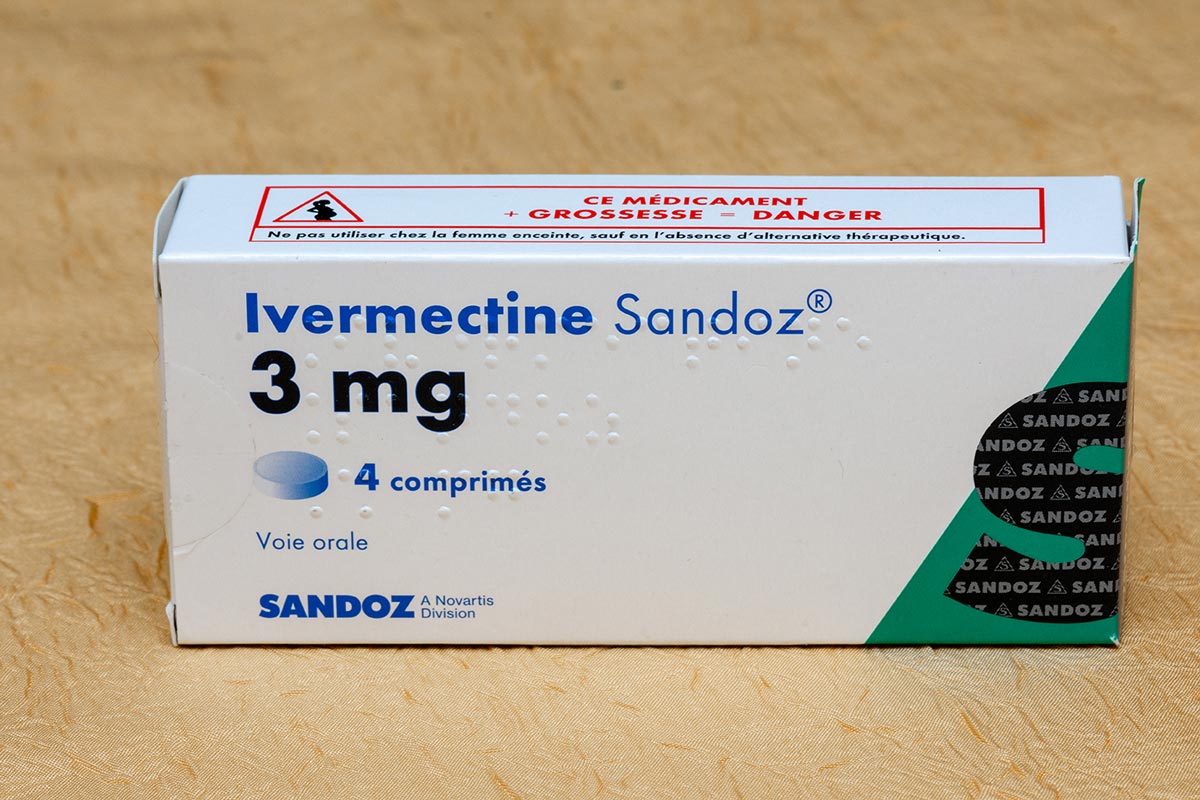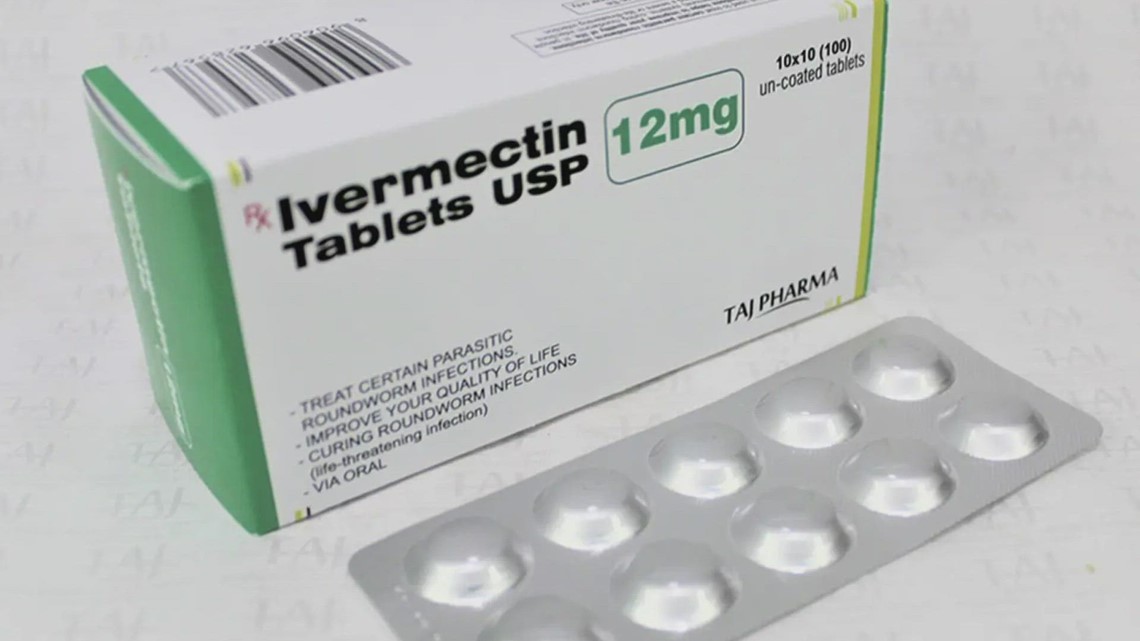Ivermectin is an antiparasitic drug. It is approved by World Health Organization (WHO) and US Food and Drug Administration (FDA) for use to treat internal parasitic infections such as onchocerciasis (river blindness), intestinal strongyloidiasis and other infections caused by various parasitic worms including whipworm, roundworm and hookworm.
Ivermectin The Wonder Drug For Infection-Causing Worms

Over the past years, Ivermectin has advanced from being a veterinary chartbuster drug to a panacea for ectoparasitic disease and nematode infestation in humans. Ivermectin oral medication has respired fresh life to the management of ectoparasitic infections that were previously based on topical solutions.
Ivermectin is a synthetic derivative of Avermectin with a structural resemblance to macrolide antibiotics. Ivermectin was initially introduced as a veterinary medicine to treat and prevent many external and internal parasites in horses, dogs and livestock. In 1981, it was first used as a veterinary treatment and now is widely being used for the treatment of billions of livestock and pets across the world for various nematode infestations.
Ivermectin for humans was first used for the treatment of Onchocerca volvulus. The role of Ivermectin medication in dermatology was an unexpected discovery which projected Ivermectin to the pinnacle of antiparasitic remedies.
What is Ivermectin?
Ivermectin is a veterinary drug and Ivermectin for humans is also available. Both types of Ivermectin are different and comprise different formulations. Veterinary Ivermectin is not meant for human use. In animals, Ivermectin is most commonly known as heartworm heartworm-preventive drug used in dogs and cats.
Ivermectin contains a highly active broad-spectrum antiparasitic agent called Avermectin. It belongs to the anthelmintic class of drugs. It helps avoid complications in people with poor or suppressed immune systems who are experiencing roundworm infections. Ivermectin works by initially paralyzing and then killing the parasites.
Uses of Ivermectin Treatment
Ivermectin is used to treat onchocerciasis, strongyloidiasis and scabies. Onchocerciasis infection is caused by a black fly bite that manifests as vision impairment and itching. Strongyloidiasis manifests through diarrhea and abdominal pain. Scabies is another skin infection that causes itching and red rashes.
Oral Ivermectin is used to treat hookworm infections (like filariasis), whipworm infections (trichuriasis), roundworm infections (ascariasis and intestinal strongyloidiasis), onchocerciasis, cutaneous larva migrans, filariases, scabies and other parasitic worm infections. Onchocerciasis Ivermectin is used to manage endemic onchocerciasis however it only kills the larva and not the adults.
Topical Ivermectin (Ivermectin cream and lotion) is used to treat rosacea, head lice and scabies. Ivermectin is the only oral medication for scabies treatment. Typically two doses of Ivermectin are prescribed seven days apart to act on freshly hatched scabietic nymph.
In resistant or severe cases of scabies infection, Ivermectin is often combined with other topical medicines such as Permethrin. Two doses of Ivermectin were found to be as effective as two applications of Permethrin.
What Can Ivermectin Treat in Animals?

Veterinary Ivermectin can help treat and prevent heartworm disease and certain parasitic infections. Ivermectin comes as a drench (liquid chemical) that is used to treat parasitic infections in sheep. Ivermectin ear suspension is used to treat ear mites in cats and kittens.
The injectable liquid and topical Ivermectin are used to treat cow parasitic infections. Ivermectin is also used off label or extra label to treat various internal and external parasites.
Medications intended for veterinary use are extremely strong than those intended for human use. These are not interchangeable. Humans should never use veterinary Ivermectin or other veterinary medications.
How Long Does it Take For Ivermectin to Kill Parasites?
Ivermectin binds to internal parts of parasitic worms and interferes with their nerve functions and muscle functions. As it binds to the nerve cells of infection-causing parasites, it makes them permeable to chloride. It interferes with their nerve and muscle functions causing paralysis and starvation in worms which leads to their death. Ivermectin also prevents adult parasitic worms from making larvae.
How to Get Ivermectin?
Ivermectin is not available over the counter. Oral and topical forms of Ivermectin are prescription-only medications. You can get Ivermectin tablets and creams only if you have a prescription from a licensed healthcare provider. Ivermectin lotion, Sklice is available over the counter and is used to treat head lice.
Some forms of veterinary Ivermectin are also available over the counter but humans should not use these forms of drugs strictly.
How To Use Ivermectin To Treat Parasitic Infections?
It is suggested to take Ivermectin on an empty stomach at least an hour before the meal. The dosage of Ivermectin depends on the illness and the weight of the patient. Make sure you take Ivermectin exactly as prescribed by your healthcare professionals. Do not alter the dose or schedule of your medication without consulting your doctor.
How Is Ivermectin Given To Animals?
Give this medication to your pet precisely as directed by your veterinarian. Your veterinarian may prescribe to combine Ivermectin oral treatment with other deworming drugs. Ivermectin for animals is available in the form of tablets, a topical liquid, chewable tablets and an injectable that is administered by a veterinarian only.
Your veterinarian may administer Ivermectin with or without food. If your pet acts sick or vomits after getting this drug on an empty stomach, it is suggested to give the medicine with food. If the vomit continues, talk to your veterinarian. For topical Ivermectin follow the instructions provided by your vet.
Is It Safe To Take Ivermectin For Humans?

Ivermectin is popularly known for its broad spectrum effectiveness in the treatment of parasite infections, its high cure rate and limited drug resistance when used as combination therapy. It is considered to be safe and efficient for adults when prescribed by licensed medical practitioners.
Ivermectin while paralyzing the body pharyngeal muscle and body wall in nematodes that causes infections has no similar effect in mammals because Ivermectin can not cross the blood-brain barrier into the Central Nervous System of mammals where GABA receptors are situated.
However, Ivermectin remains in the blood for up to 18 hours so pregnant women and breastfeeding mothers ( Ivermectin passes into breast milk) should take this drug only after consulting a doctor. Ivermectin should not be prescribed to children with less than 15 kg body weight.
Potential Side Effects Of Ivermectin in Animals
Generally, Ivermectin is well tolerated but it may have serious neurological side effects in animals when not used as prescribed or given at high doses. Some breeds including collies are sensitive to moderate doses of Ivermectin and may experience side effects at lower doses.
If you notice side effects in your pet such as vomiting, upset stomach, dilated pupils, diarrhea, or unsteadiness when walking talk to your veterinarian.
Possible Side Effects In Humans
Generally Ivermectin is well tolerated by humans with minimal risk of adverse reactions. Common side effects of this drug that do not require any treatment include rashes, fever, itching and dizziness. Serious side effects include headaches, increased heart rate, severe dizziness, muscular pain or spasms, and swelling around the face, hands, arms, feet and legs.
Who Should Not Take Ivermectin?
Ivermectin is safe and effective to treat several parasitic infections however it may not be suitable for certain people. Make sure your doctor knows about your medical history to avoid adverse events. In Asthma patients, patients with liver problems, seizures and HIV, the drug can worsen your medical condition if not used cautiously.
Moreover, in older adults, the drug may remain in the body for longer and can increase the risk of side effects. Children weighing less than 15kg should not take this drug. No studies have been conducted concerning the safety of Ivermectin in children having body weight less than 15 kg.
Can People With Liver Or Kidney Disease Take Ivermectin?
Usually, Ivermectin is considered a safe drug and tolerated well by patients and no serious liver injury has been reported with the use of this drug. Ivermectin has not been linked with chronic liver injury or acute liver failure.
Ivermectin stays active in the blood circulation for up to 18 hours and it can persist even longer in the system. It stays in the intestines for up to 12 days and during that period it continues to depict its antiparasitic effects.
In people with liver or kidney disease, the metabolism of Ivermectin is obstructed. Due to that, it can remain in the system for a longer period in people suffering from liver and kidney problems.
Moreover, parasitic infections that are treated with Ivermectin can cause kidney and heart problems. If you experience any symptoms of liver or kidney problems including fatigue, nausea, vomiting or changes in how often you urinate talk to your healthcare provider.
Missed Dose
Usually, Ivermectin for humans is prescribed as a single dose Ivermectin so there is no chance of a missed dose. In case you are on an Ivermectin regimen and you missed taking a dose, take it immediately as you remember. If you realize the missed dose when it is almost time for your next dose, skip the missed one and continue with your regular dosing schedule. Do not get double doses.
Overdose
There are fewer chances of accidental overdose because mostly Ivermectin is prescribed as a single dose. If you have been prescribed a high dose, a mild overdose may occur. Intentional or accidental Ivermectin overdose can lead to extremely serious symptoms. In that case, talk to your doctor or medical advice or call a poison control Centre to get immediate medical attention.
Ivermectin Can Interact With Other Drugs

Drug interactions can influence the way your medications work or increase the risk of potential side effects. Before taking Ivermectin tell your doctor about any medications, supplements or herbal products you are using. Your healthcare professional needs to prescribe the medication accordingly.
Some medications that can interact with Ivermectin include Warfarin, Barbiturates (Butalbital and Phenobarbital), Sodium Oxybate, Valproic acid, and Benzodiazepines (Lorazepam, Clonazepam).
Tips For Taking Ivermectin To Ensure Safety And Best Results
- Ivermectin is a prescription-only drug, always take it after consulting a healthcare provider under medical supervision.
- Always take this drug as prescribed by your healthcare professional. Do not take less or more Ivermectin than your doctor suggests for your condition.
- Tell your healthcare provider about any allergic reactions, or side effects that occur while taking this drug or if the symptoms continue.
- Never swallow topical forms of Ivermectin as it can be harmful.
- Avoid sharing this medicine with others without consulting your doctor.
- Get your lab or medical tests (E.g. stool exams for intestinal parasites) done while you are under Ivermectin treatment.
- Never use Veterinary Ivermectin formulations as these contain extremely strong than human formulations and may cause severe side effects.
- Ivermectin is not FDA-approved for the treatment or prevention of Covid-19 so it should not be used for this purpose.
